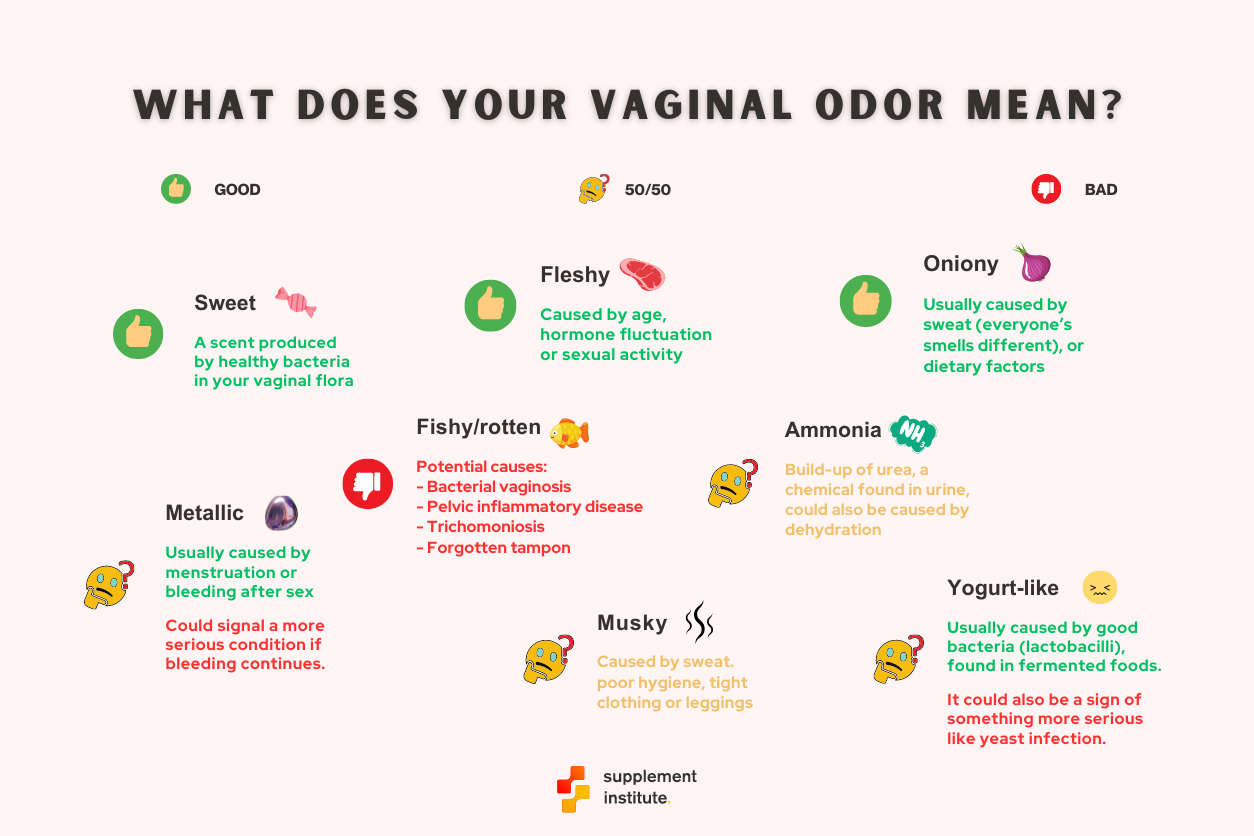Hygeine Experts Weigh In: How Much Vaginal Odor Is Normal & When Is It a Sign That Something Is Wrong?

What Is Normal Vaginal Odor?
Just like the rest of your body, your vagina has its own natural scent, which can vary slightly from day to day. Factors like your menstrual cycle, diet, and even stress levels can influence how you smell down there. Typically, a mild, slightly musky odor is entirely normal and nothing to worry about. Your body is doing its job, and that includes maintaining a healthy balance of bacteria that help keep your vagina in check. As Dr. Jackie Walters, OB/GYN, explains, “Vaginal odor has nothing to do with personal hygiene, it is all about balancing your vaginal pH.”
The odor may change throughout your cycle, especially during menstruation or after sex. These variations are usually normal and shouldn’t be cause for concern unless they’re accompanied by other symptoms like itching, burning, or an unusual discharge.
When Vaginal Odor Might Signal a Problem
So, when should you start paying closer attention? A sudden, strong, or foul-smelling odor is often a sign that something is off. If you notice a fishy smell, it could indicate bacterial vaginosis (BV), a common infection caused by an imbalance in the vaginal flora. BV is usually accompanied by a thin, grayish discharge and might require treatment with antibiotics.
Dr. Shannon Klingman, MD, often advises her patients to perform a “finger check” to get familiar with their vaginal scent. She emphasizes that “the vagina is not to blame for the odor below the belt,” explaining that much of what we perceive as vaginal odor often originates from the external vulva or peri-anal areas. However, she cautions that if you do notice “a fishy, putrid, or foul odor that smells off, then you need to see your doctor.”
Similarly, if the odor is accompanied by a thick, cottage cheese-like discharge, itching, and irritation, it could be a yeast infection. Yeast infections are common and can be treated with over-the-counter antifungal medications, but if it’s your first time experiencing these symptoms, it’s best to see a healthcare provider for a proper diagnosis.
Other signs to watch out for include a green or yellow discharge, which might indicate a sexually transmitted infection (STI). Any odor that’s new, particularly strong, or comes with discomfort is worth discussing with your doctor.

Do Vaginal Deodorants Help?
Given the emphasis on freshness in our culture, it’s no surprise that vaginal deodorants have become a popular way to manage odor. Many vaginal deodorants work by masking odors, but not all are created equal. Some contain ingredients like artificial fragrances, alcohol, or even mandelic acid, which can lower the skin’s pH and act as a gentle exfoliant. While this might sound appealing, it’s important to remember that the skin around your vagina is incredibly sensitive.
Dr. Ashley Townes cautions, “Be mindful of using store-bought vaginal deodorizers and pH balancers as well as online supplements. Many of these products have ingredients that are harmful.” This is why a better approach might be using a deodorant that focuses on maintaining your skin’s moisture and pH balance rather than just covering up odors. Natural ingredients like tea tree oil, coconut oil, and vitamin E can help strengthen your skin’s moisture barrier without the harsh effects of synthetic chemicals. This is especially important if you’re prone to irritation or infections.
Some deodorants, like the Bona Dea Naturals feminine deodorant spray, are designed specifically for sensitive skin, using natural oils and botanicals to soothe and protect. These products aim to manage odor while supporting the health of your skin, unlike many over-the-counter options that may do more harm than good in the long run.
What Product Should You Choose?
When choosing a feminine deodorant spray, look at the ingredient list and understand what you’re putting on your body. Lume’s whole-body deodorant has no aluminum or silicone and is marketed as safe for all skin types. But it also contains exfoliating ingredients like mandelic acid that can irritate the delicate skin in the genital area and potentially disrupt its natural barrier.
On the other hand, there are products on the market that take a different approach, focusing on natural ingredients like tea tree oil and coconut oil, which are known for their antibacterial properties and soothing effects. These products are designed to work with your body’s natural processes, helping to manage odor without disrupting your skin’s balance.
If you’ve struggled with irritation or infections in the past, opting for a deodorant with a simpler, more natural ingredient list might be the way to go. It’s about finding what works best for your body without compromising your health.
How to Maintain a Healthy Vaginal Environment
Aside from using the right products, there are other steps you can take to ensure your vaginal health. Wearing breathable cotton underwear, avoiding overly tight clothing, and steering clear of scented soaps or douches can all help maintain your vagina’s natural balance. Remember, your vagina is self-cleaning, and it doesn’t need a lot of extra help to stay healthy.
As Dr. Klingman explains, “The vagina is internal, and the vulva is external… The vagina is not to blame for the odor below the belt.” Keeping this distinction in mind can help you better understand and manage your vaginal health.
If you’re noticing changes in your vaginal odor and aren’t sure what’s normal, it’s always a good idea to consult with a healthcare professional. They can provide guidance tailored to your specific situation and help you choose the best course of action.
Taking care of your body means paying attention to the signals it sends you, and vaginal odor is just one of those signals. By understanding what’s normal and what might need attention, you can keep yourself feeling confident and comfortable in your skin. And if you choose to use a deodorant, make sure it’s one that supports your health, not just covers up a problem.
Building a Stronger You
Supplement Institute is the fruit of extensive online publishing experience, spanning the breadth of SEO strategies to the nuances of paid advertisements. Our journey, marked by significant achievements and learning moments, inspires our core mission: to empower our readers with an abundance of information. By sharing insights and key learnings, we aim to provide you with the knowledge needed to navigate the complex world of supplements, helping you make well-informed decisions for your health and well-being. Welcome to Supplement Institute, where information is your greatest supplement.